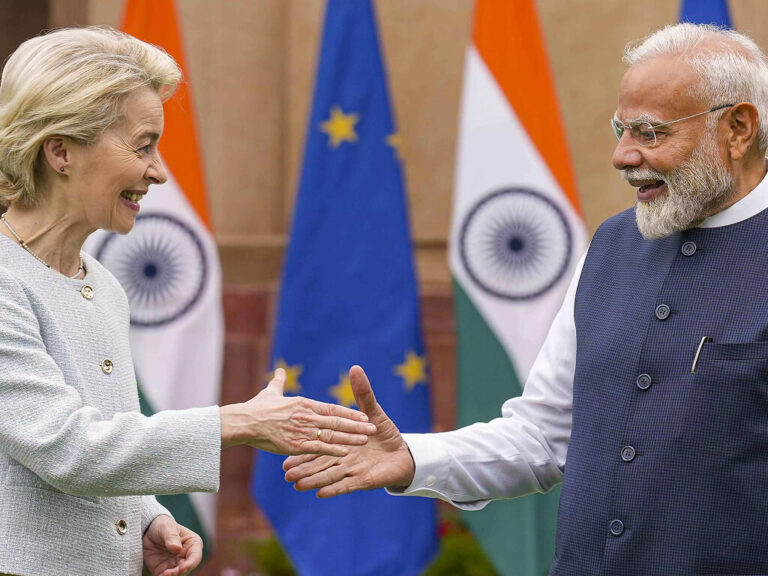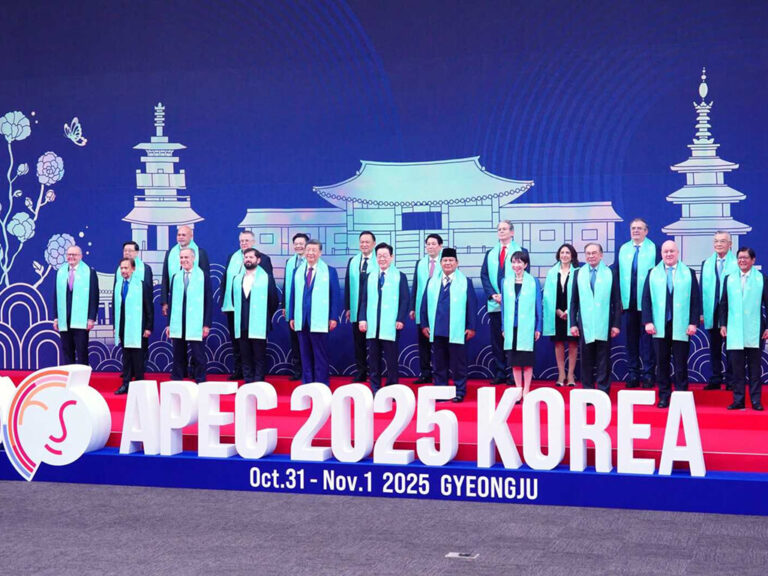The United States is strengthening its ties with the Gulf’s wealthiest monarchies, positioning Saudi Arabia, the United Arab Emirates, and Qatar as key strategic allies. Through expansive arms deals and substantial economic partnerships, Washington is reinforcing its influence across the region. During a recent high-profile tour, President Donald Trump announced a series of multibillion-dollar technology and defense agreements with Gulf leaders.
It seems that for Trump, the Gulf has become the new Europe, with Saudi Arabia, the UAE, and Qatar taking on roles similar to the UK, France, and Germany.
There are so many deals.
A flurry of high-profile announcements emerged during Donald Trump’s diplomatic tour of the Gulf, which featured an unusually large entourage of prominent CEOs. At the center of the trip was a $142 billion arms agreement between the United States and Saudi Arabia—touted by the White House as the largest defense sales deal in American history. Alongside the weapons package, Saudi Arabia also struck a major semiconductor deal, committing to purchase hundreds of thousands of Nvidia’s advanced Blackwell chips for Humain, an AI startup backed by the kingdom’s sovereign wealth fund. The broader slate of agreements included Saudi investments in U.S. technology and manufacturing sectors, with companies like Amazon Web Services and Qualcomm signing additional deals focused on cloud computing and cybersecurity.
In the United Arab Emirates, Donald Trump announced over $200 billion in new agreements, including a $14.5 billion partnership involving Boeing, GE Aerospace, and Etihad Airways. The two countries also unveiled plans to establish the world’s largest artificial intelligence campus outside the United States, to be built in Abu Dhabi. As part of that initiative, the UAE is set to import 500,000 of Nvidia’s state-of-the-art chips—considered among the most advanced globally for AI development. Cisco also signed a deal with a UAE-based AI company to support the nation’s growing tech ambitions.
Trump’s other major stop was Qatar, where further agreements were finalized. Boeing secured a $96 billion deal to sell up to 210 aircraft to the Gulf state. The announcement followed reports that Qatar had offered Trump a $400 million luxury jet, which he reportedly described as too valuable to turn down.
Positioning himself as a dealmaker, Trump traveled with an entourage of prominent American tech leaders, including Nvidia’s Jensen Huang, OpenAI’s Sam Altman, Elon Musk, Amazon’s Andy Jassy, and Palantir’s Alex Karp, among others. These executives met directly with Gulf leaders to negotiate the terms of their respective deals.
Political implications
While the visit was largely framed around trade and investment, its political undertones were unmistakable. By supplying advanced weaponry and cutting-edge technology to affluent Gulf states, the U.S. is helping elevate their status as dominant powers within the Islamic world. At the same time, this strategy deepens Washington’s foothold in the region. Saudi Arabia, Qatar, and the UAE are not just economic powerhouses—they are also seeking to become influential political players.
Saudi Arabia has long maintained strategic interests in Yemen. With the Houthis now targeting Israel, Riyadh may find itself in a stronger position to expand its involvement there. U.S. weapons and technology are likely to support Saudi Arabia’s objectives in Yemen. Meanwhile, the UAE has been accused of pursuing interests in several African nations, and Qatar continues to exert influence through its powerful media networks and religious diplomacy.
In return for these expanding roles, the United States seeks dependable regional allies. Saudi Arabia has played a key role in facilitating renewed U.S. engagement with the Syrian government—a development that could benefit Israel by paving an accord, similar to existing ones with Egypt and Jordan. There is also speculation that Saudi Arabia or Qatar could bring Lebanon into this emerging alliance.
This growing partnership may gradually shift the center of gravity in the Islamic world back toward the Gulf.
Trump, the true negotiator
Trump supporters previously called for him to receive the Nobel Peace Prize, citing his role in initiating the Abraham Accords. It was a significant move that shifted the Middle East’s focus from religious to business-minded priorities. His business-first approach and strong negotiating skills are credited with fostering greater peace and stability in the region during his first term.
Even as Israel’s retaliatory military campaign in Gaza continues—drawing condemnation from global Muslim communities and left-leaning groups—Trump’s expanding deals with Arab states are seen by many as a major success of his foreign policy.
Observers expect Trump to push for further agreements in the spirit of the Abraham Accords, encouraging regional solutions to long-standing conflicts. His close personal ties with Gulf leaders—evident in their extravagant gifts and symbolic gestures—underscore a broader shift in U.S. interests toward the Gulf. In the eyes of both supporters and critics, Trump is not just a politician but a dealmaker who recognizes economic and geopolitical opportunities where others do not.








